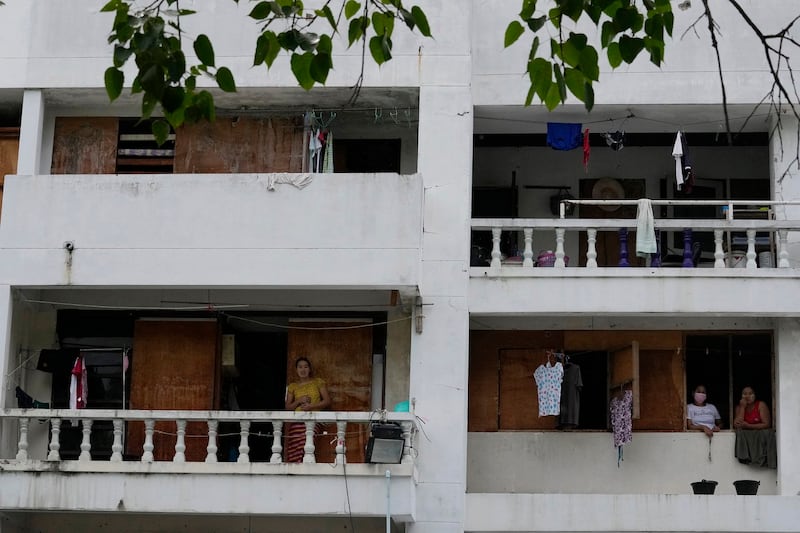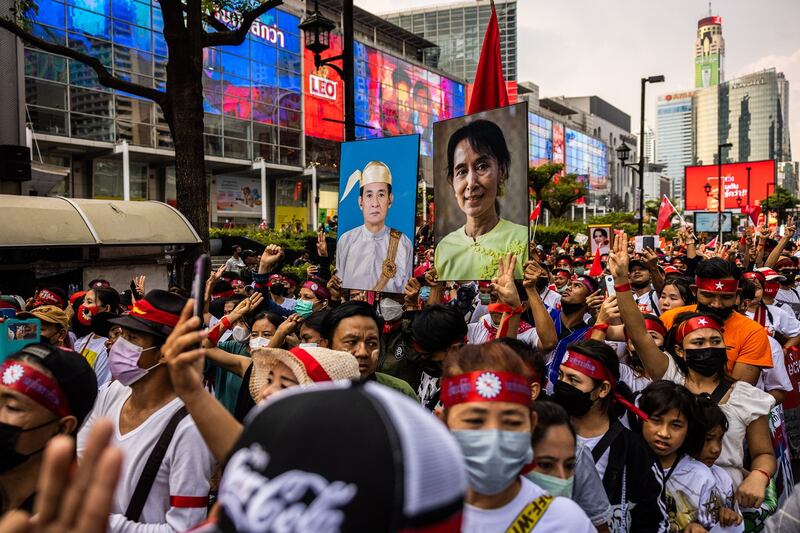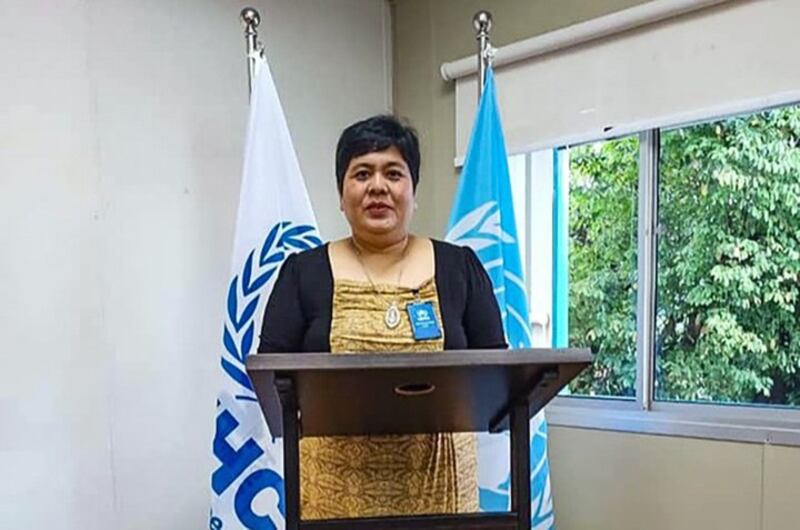Some 210,000 migrants from Myanmar have flooded into Thailand over the past two years under a renewed bilateral labor agreement with Myanmar’s junta.
But those applying for jobs under it face a daunting maze of paperwork, often leading to the murky world of bribes and brokers. For many, the costs and difficulties involved in legal entry push them towards illicit paths into Thailand.
And when the promises of employment agencies fall through, it’s not Myanmar’s military who step up to resolve the issues, but it is rather Thai labor officials and labor advocacy organizations who step in to untangle the complications, working in conjunction with the National Unity Government, or NUG, Myanmar’s civilian government-in-exile.
Despite a lack of recognition, the NUG has also set up and operated systems to record Myanmar workers’ complaints in three Asian countries that employ high numbers of Myanmar workers.
In Thailand alone, where there are now as many as 7 million Myanmar nationals, NUG's Ministry of Labor handles roughly 10 cases a month and up to 200 cases per year.
Its main functions in Thailand are receiving worker complaints and ensuring regional Thai labor offices take action, and most cases occur when workers are laid off before their contract ends, or when they’re denied compensation, according to the ministry.

“We liaise with the Thai labor parliamentarian team and then ask them to work with us to support the Burmese migrant workers,” said Naing Htun Oo, head of NUG’s Overseas Labor Department in Thailand, who declined to use this real name for fear of retaliation.
“When we receive a complaint, we inform them that there is a problem with the Burmese migrant workers,” he told Radio Free Asia.
He added that some employers and employment agencies are eager to resolve the issue and don’t want it taken to higher Thai authorities, but others simply don’t acknowledge the communication they receive from his office.
“On one hand, the [employment] agencies are not taking responsibility, on the other hand, we haven’t got the legal or entity status in Thailand. It’s very, very challenging.”
Limited capacity
Despite its efforts, the NUG has struggled to establish a strong presence in Thailand’s foreign policy arena, and Naing Htun Oo lamented that the lack of formal recognition has significantly hindered the government in exile’s ability to operate effectively.
He explains that this limitation forces them to spend substantial funds unnecessarily in aiding Burmese migrant workers, often struggling to support large numbers simultaneously.

Surachanee Sriyai, a visiting fellow from the Yusof Ishak Institute of Southeast Asian Studies, notes that with Thailand’s primary interests in border security and oil and gas already addressed in dealings with junta officials and groups at the border, it leaves the NUG with a relatively minor role on the ground.
She added, however, with the transition to Thailand’s Pheu Thai Party, there is potential to include Myanmar’s non-junta actors in future track 1.5 or track two diplomacy.
“It’s almost as if the NUG is filling in on the supplementary capacity, working in the aspects that the junta do not care for,” she said. “That’s also overall good for the Burmese workers, for sure. But is that good enough for the NUG?”
Safety risks
The NUG isn't seeking a foothold in Thailand alone. As Myanmar nationals are regularly sent to other East and Southeast Asian countries for jobs, the government-in-exile is also working to establish a presence in Malaysia and South Korea.
But a more pronounced role can come with serious risks. While the NUG’s Ministry of Labor told RFA their colleagues stationed in South Korea were safely able to establish a secure office in the country, their counterparts elsewhere have not fared as well.
Thuzar Maung served as the NUG's Overseas Labor officer in Malaysia until her disappearance in July.
A committed democracy and labor activist residing in Malaysia since 2015, Thuzar Maung, her husband, and their three children were reportedly abducted following confirmation from Malaysian police about a vehicle with counterfeit police license plates leaving their residence.
This incident has led to a palpable sense of caution within the NUG. Since Thuzar Maung’s abduction, the NUG has not appointed a successor for her.

The situation is not that different for Naing Htun Oo in Thailand. He said despite the volume of workers he assists year-round, he’s received threats from Myanmar embassy staff appointed by the junta.
“When I receive the complaints from the Burmese migrant workers, even though I’m working and supporting them, I never show my face, I never tell them about my name,” he said.
Despite these daunting circumstances, the department remains committed to supporting Burmese workers in any possible way, continuously exploring avenues to assist them in-country.
“We are trying any possible thing to support the Burmese migrant workers in any shape or form that we can,” Naing Htun Oo added.
Edited by Taejun Kang and Malcolm Foster.
